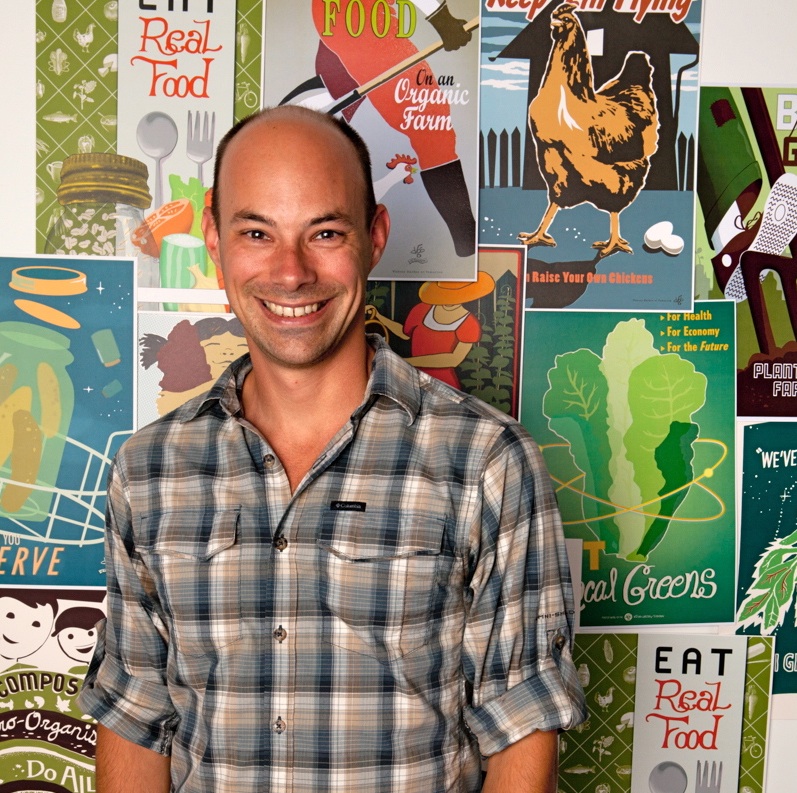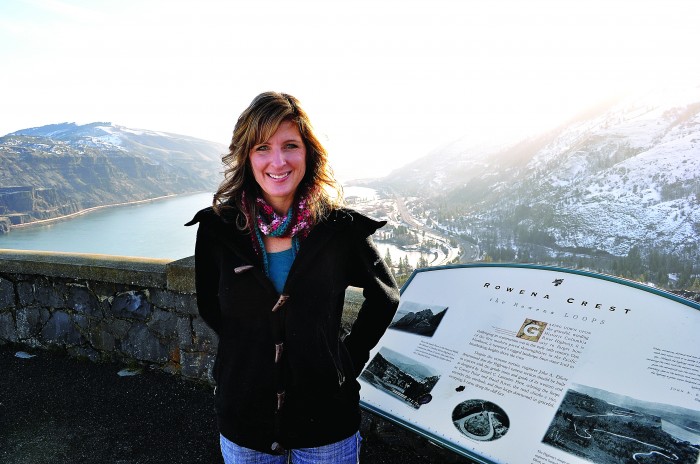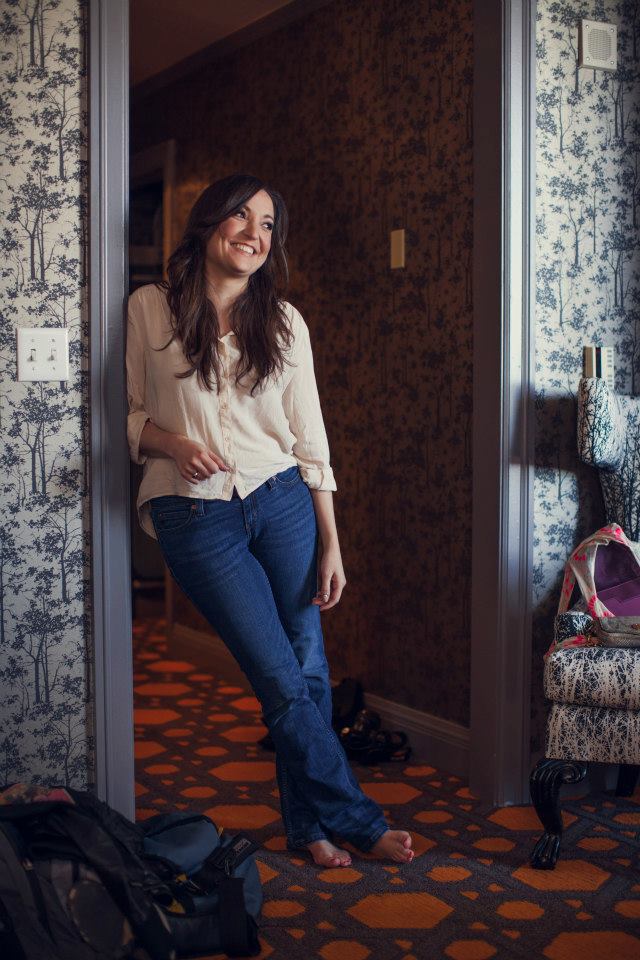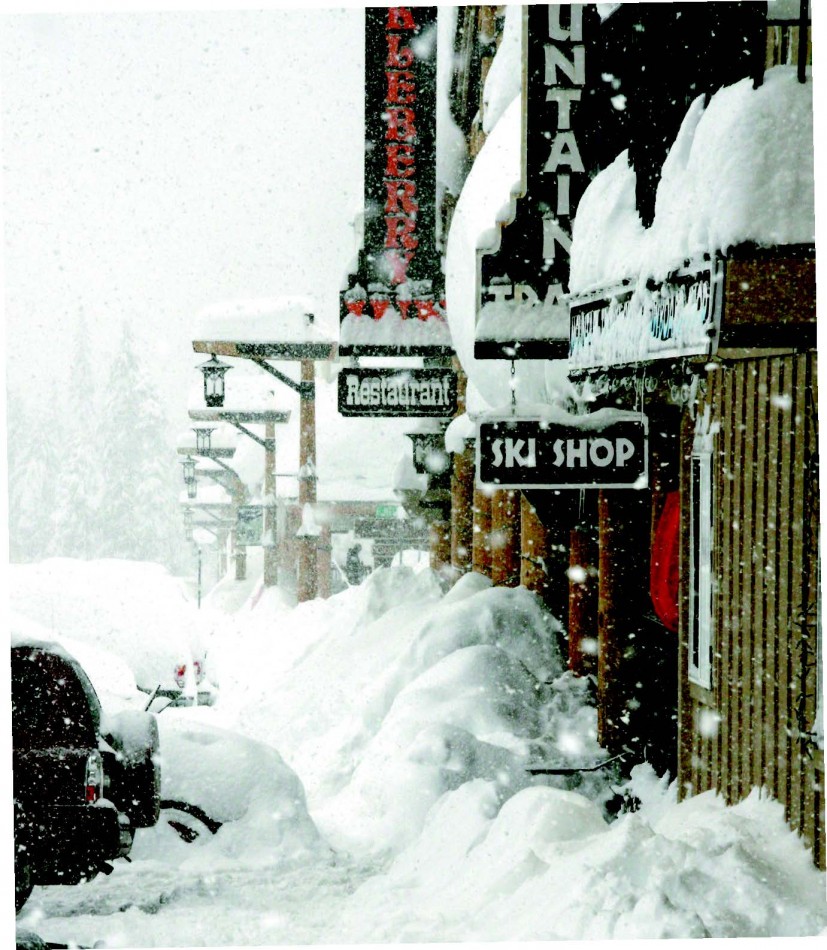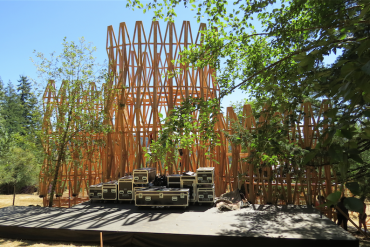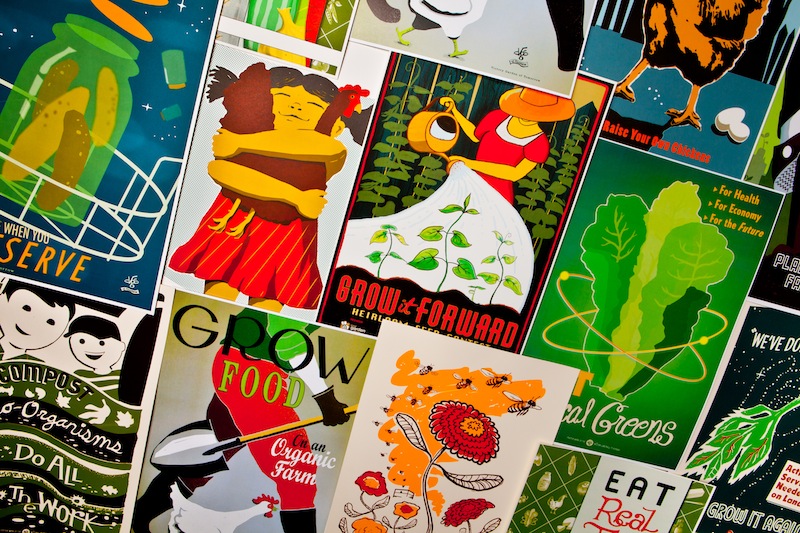
As if it were a seedling, Joe Wirtheim’s artistic vision took time, care, processed foods and creativity to take root.
An accomplished surrealist painter encouraged the artist to break new ground with his graphics and illustrations. Wirtheim soon became the driving force for “The Victory Garden of Tomorrow”—a growing collection of handmade screenprints, posters, clothing and kitchenware that motivate others to “Eat Real Food” and plant personal gardens.
In 2005, while he was in design school, he started working at a summer camp in Columbus, Ohio. “I was looking at what we were feeding these kids,” says Wirtheim, now 35. “A lot of the kids were overweight. They were eating crackers and a lot of processed or packaged foods.”
He reached a breaking point that same year, when Columbus once again made the top twenty most overweight cities in the United States. He researched the matter, finding a shock-inducing rise in obesity and diabetes rates.
“A lot of these food products that are being served to people are just that, ‘products,’” Wirtheim says. “They’re not necessarily a whole food.”
In 2007, he moved to Portland, home to a burgeoning farm-to-table movement. Here, Wirtheim studied communications at Portland State University. This is where he was first exposed to persuasive media and poster making.
“The poster has been a tool of propaganda for a long time because of its speed of conveyance and the latitude of people it can access,” says Wirtheim. Drawing from his childhood love of comic book illustrations, he began designing graphics. The brightly pigmented images conveyed positive messages to grow food, to raise chickens or to cultivate healthier lifestyles. He called the project, “The Victory Garden of Tomorrow.”
“The Victory Garden empowered a homegrown, smaller-scale, whole food idea,” he says, citing a time during World War I, when Americans were encouraged to grow their own food to alleviate pressure on the agricultural industry. Wirtheim was also influenced by the 1939 New York World’s Fair, which encouraged innovation and progress with its tagline “The World of Tomorrow.”
“I combined those sentiments—the Victory Garden with the excitement of technology and progress,” he explains. “Using our imagination, we can re-imagine a very exciting, healthful urban environment.”
In 2008, Wirtheim opened shop on Etsy, a website for boutique business owners to sell their creations. He also partnered with smallscale screenprinters and print shops in Portland to bring his designs to life.
In 2010, a national magazine caught wind of The Victory Garden’s sprouting popularity and published a short piece on the artist’s prints. “I wasn’t prepared,” he says, laughing. “I didn’t know what it meant when I said, ‘Sure, you could put it in your magazine.’”
It meant a deluge of attention. At the time, he was still a student, operating the growing business out of his bedroom. “It was just silly,” the artist recalls. “My bed basically became my work counter.”
The wave of publicity also brought in dozens of emails from small farms, co-ops and nonprofits around the country, asking him to create custom logos or poster designs for free. Wirtheim didn’t blanch at the pro bono opportunities, saying it was the type of work he could truly get behind.
One such collaborative piece he developed when a woman living in a small town in Illinois began lobbying her city council to keep hens in her yard. Wirtheim allowed her to post his prints around town to garner support, and the vote eventually passed in her favor.
In gratitude, she sent Wirtheim photos of kids holding her hens. Amused, he created his own graphic based on the pictures and titled the poster “Girl Hearts Hen”—one of the many iconic prints on his website.
“Each design ends up having its own story and touches on a special community,” he says. “Having my original ideas is great, too, but taking inspiration from a community program or something unexpected— what people are doing in the real world— brings more meaning to some of these designs.”
The artist is breaking new ground once again; this time, on foreign soil. Wirtheim gave up his Portland art studio to spend a year teaching English in South Korea, bringing his art along with him. He is steadfastly rooted in his project, planning new illustrations based on his journey through cities abroad.
“If tomorrow is going to be more of an urban place, it’s going to be a place where we rediscover our urban life and our sensibilities, but it doesn’t have to be this gritty, concrete and steel jungle,” says Wirtheim.
All photos by Joni Kabana.


